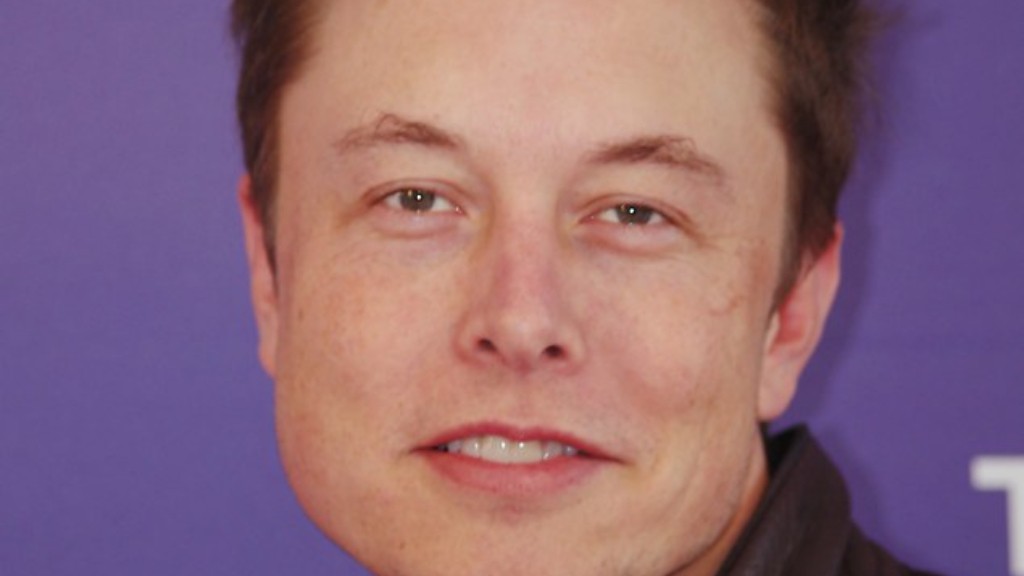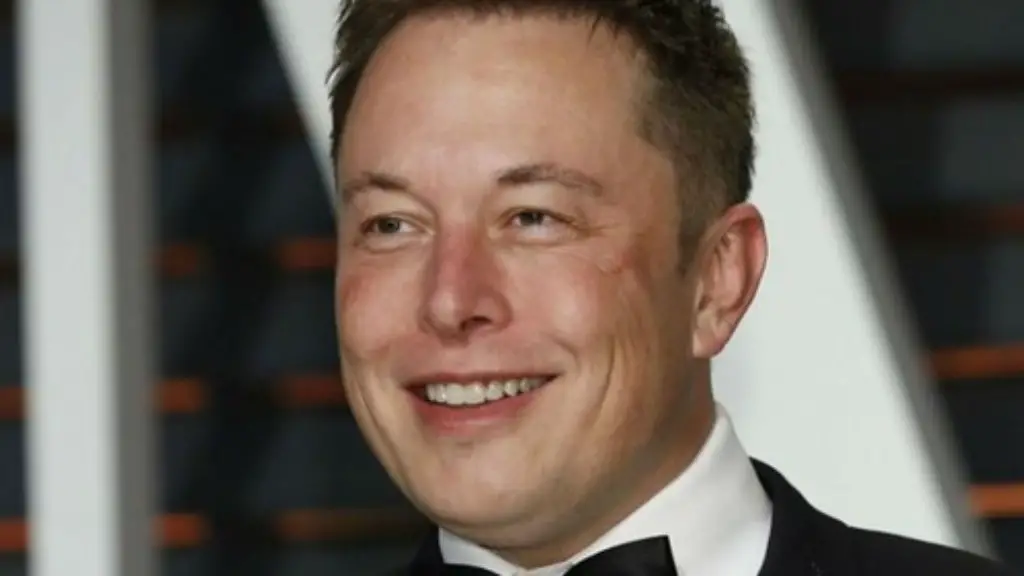Elon Musk is often labeled one of the most influential tech leaders of the 21st century, yet he has some reservations when it comes to Artificial Intelligence (AI). Initially, Musk has claimed that he “believes in the futurization of humanity,” and that AI’s capabilities will help humankind achieve this. However, Musk has also gone on to emphasize that if not regulated properly, AI could pose a great risk to humans. Musk’s views are echoed by Oxford Philosophy professor Nick Bostrom, who states that an AI system could be vastly more powerful than any human intelligence and that, if not regulated heavily, no human would be able to control it.
In 2016, Musk donated $10 million to the Future of Life Institute, which was established to ensure that Artificial Intelligence will void any potential dangers it may bring, and to also ensure that it will be used for good. This is not the first time that Musk has donated to the institute, as he had contributed $7 million two years before. This unprecedented decision has both scared and amazed many people, showing his trust in the AI capabilities but also the fact that it could get out of control if proper regulations are not put in place, as he himself has said numerous times.
One example of the dangers of AI would be a superintelligence capable enough to recognize even the most complex data patterns – a process called classifying. Scientists claim that these systems may eventually be able to detect patterns faster than we as humans can, both in real-time and at scale. This is worrying to Musk, as this level of technological power in the wrong hands could be disastrous. Another issue that is concerning to Musk is the development of AI described as “narrow AI”, where machines can be programmed to complete certain tasks, yet it could get to the point where it begins to learn for itself. The potential for errors or even the wrong intentions is incredibly real, something which Musk is concerned about.
Musk also believes that technology is an ever-growing industry, due to its potential to revolutionize lives and make day-to-day activities simpler for everyone. To Musk, AI technology has the potential to make this change, as it has already been implemented in the field of medicine. For example, AI systems can help detect various diseases and quickly come up with cures, due to its capabilities to work with vast amounts of data. AI has also been used in robotics, where machines are able to operate with higher precision, faster speeds, and more efficiency, as well as make split-second decisions. Thus, AI could be a crucial tool in pushing technology forward and having a positive effect on society.
Furthermore, Musk is known for his passion in wanting to explore the outer space, and this is why he has come up with his aerospace manufacturing company, SpaceX. This company is hoping to continue with the research and development of ‘Space-Travel-Agent-Bots’ (STABs) which are “pursuing an autonomous AI-driven mission planning, resource allocation and purpose-driven flight control system” according to the company’s description. Musk hopes that STABs would ultimately be safer than human pilots and crews.
All in all, Elon Musk is a major advocate for the positive usage of AI, yet he still argues that regulation and research is essential in order to avoid its potential risks. As technology becomes ever more integrated in our lives, we must also adapt to its implications and strive for better regulations. With the help of passionate leaders like Elon Musk, perhaps a balance between innovation and preservation can be found.
Possible risks and dangers of AI
The development of artificial intelligence can bring both advantages and disadvantages to society, something that Elon Musk is only too aware of. One example of a potential danger of AI would be autonomous weapons. These weapons have been known to take over certain tasks which are too dangerous for humans to do, and this raises the question of who would be held responsible for any damage or injury if the weapons remain autonomous.
Additionally, AI has been known to give rise to fully automated systems, capable of making decisions on their own once given certain parameters. Although this could mean that some manual labor could be outsourced and that people would not need to intervene in certain tasks, it could also result in an unethical ‘black box’ where AI would be operating without any transparency and yet still altering the landscape of economy.
Moreover, a further threat could be the introduction of intelligent systems which would be capable of learning from humans and mimicking human behavior. This could lead to a situation where AI would essentially replicate human interactions without being subject to any moral standards or legal boundaries, as we as humans currently are.
Finally, some people have also argued that AI will replace human labor, with some research suggesting that it could replace up to 40% of current jobs by the year 2030. This in turn could leave certain parts of the workforce in a vulnerable state, and potentially create large disparities in income, even leading to the emergence of poverty in certain areas.
Problems with regulating AI
When it comes to regulating AI, there is much that needs to be taken into account in order to create a legal framework which could be able to protect both humans and machines. In a legal context, AI is referred to as “notions of trust and legality” in order penalize the wrong doings, and yet this remains a challenge due to its highly complex nature.
Moreover, it is not just the legal side that needs to be tackled, but also the ethical one. Questions such as the benefits of AI and who should benefit from it must be answered, as well as how and to what degree these benefits should be provided. There is also ‘The Uncertainty Principle’, which states that as machine intelligence advances, understanding its potential becomes increasingly difficult. This raises further problems in terms of regulation and security, as the complexity of these systems becomes too vast for us as humans to understand and control.
Furthermore, some companies have proposed to regulate the use of AI by introducing ‘ethics laws’, which, however, have been met with criticism from all sides. Such laws, according to some, would be both difficult to enforce and misuseable by large tech companies to safeguard their own interest.
Finally, it is also important to note that regulating AI also involves regulating the users who create and maintain it. To do this, we must pair up with skilled experts specialized in coding, data sciences and even physics to ensure that the machines possess no concept of unethical behavior.
The Current AI Regulation Efforts
In response to the concerns that Musk has raised, various governments and organizations have put in place various regulations with the intent to prevent negative outcomes from AI. One example of this is the European Union’s GDPR, which has strict rules for data handling, as well as its “right-to-be-forgotten” standard. This ensures that companies will have to maintain high security standards and not use data for any malicious intentions.
Moreover, the International Telecommunication Union (ITU) has also adopted stringent measures when it comes to the regulation of AI, which includes the establishment of the Contact Group on Artificial Intelligence. This is with the purpose of creating international standards for the development and deployment of AI, since as we as humans are becoming increasingly less capable of understanding and predicting the behavior of these systems.
Furthermore, the Institute of Electrical and Electronics Engineers (IEEE) has also adopted a set of ethical guidelines covering areas such as safety of robotic systems, automation and autonomy, environmental impact, privacy concerns and many more. This is with the aim of guiding the design and use of AI-based technologies in order to have a positive impact on society.
Finally, there is also the United Nations Human Rights Office, which has proposed a Human-Centered AI Index. This would help in identifying and limiting any potential human right violations which could arise out of the use of these technologies.
The future of AI Regulation
The future of AI regulation is still uncertain, yet many countries have already started to show a clear interest in regulating these systems. In the US, both the Obama and Trump administrations have already announced plans to “promote the responsible use of AI”. Similarly, the British government has also declared that it wants to build a “world-leading ethical framework for the development of AI”.
Furthermore, Musk himself has spoken about the need for regulation of AI, and proposed a range of solutions. These include the implementation of laws which would make sure that rigorous testing procedures are followed, as well as the idea of introducing independent committees which would periodically review the ethical use of AI.
Moreover, the UK has recently proposed the idea of empowering “guardians” or “champions” of AI, with the purpose of overseeing and keeping accountable companies and organizations who develop, maintain and use these systems. This proposal is still in its early stages, yet could potentially prove successful in regulating AI usage and preventing any potential dangers.
Finally, another great example is the European Commission, which has launched its AI4People Initiative with the goal of making sure that all AI algorithms employed in Europe will be “ethically designed, developed, deployed and governed”. This initiative is a great step forward in terms of regulation, showing Europe’s intentions to lead the way as a world leader in AI.
The impact of AI on society
In spite of the potential dangers of AI, it is no doubt that these technologies can have a positive impact on society. For instance, AI-enabled voice and facial recognition systems have made it possible for robots to understand and recognize human emotions, which in turn has potential to assist people with certain mental or physical conditions.
Besides this, AI systems have made it easier to diagnose and treat diseases by providing doctors with detailed reports and streamlining the processes of data analysis. Similarly, AI has enabled greater accuracy in detection and identification of malignant tumors and other illnesses, decreasing the chances of misdiagnosis. Furthermore, AI has also enabled scientists to model the spread of diseases and come up with cures for them faster than ever before.
Moreover, with the help of AI, certain repetitive tasks can be automated, therefore saving time and costs, as well as making them safer for humans. For example, certain production lines and certain hazardous environments can now be monitored using these technologies, as well as machines being able to perform tasks too dangerous or difficult for humans to do.
Finally, AI has also been used to solve certain environmental problems, such as in the field of renewable energy and energy-saving. These technologies can identify and calculate the most effective ways of utilizing energy sources and use this data to inform the decision-making process. Similarly, AI can be used to track and monitor various aspects of climate, such as temperature, rainfall and air quality.




